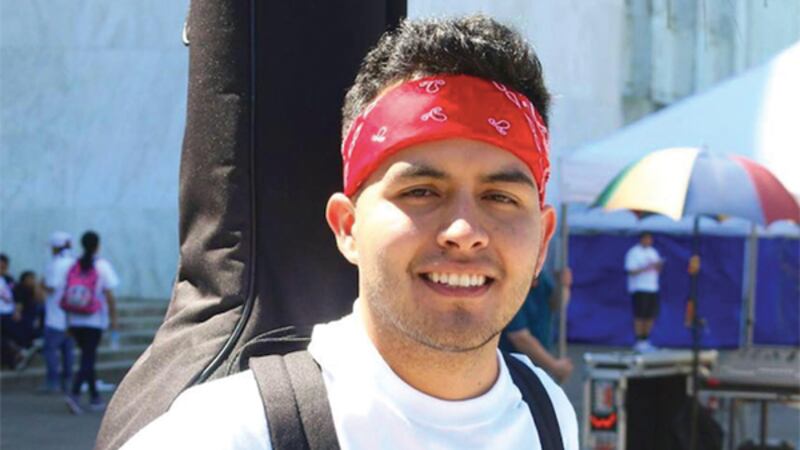Tonight, Aldo Solano is sitting in the U.S. Capitol to listen to a president who has threatened to deport him.
Solano, 24, is a health care advocate who was born in Colima, Mexico, and has lived in Oregon since he was 6 years old. His immigration status was protected by a program called Deferred Action for Childhood Arrivals, or DACA. That program, which allows people who illegally immigrated to the U.S. as children to stay here, is now the subject of partisan wrangling between Congress and President Donald Trump.
Solano was flown to Washington, D.C., by U.S. Rep. Earl Blumenauer (D-Ore.) to attend the president's State of the Union address in Blumenauer's place. Blumenauer was the first member of Congress to announce he would boycott the speech—but his decision last week to send Solano inspired more than 20 other Democrats to send DACA recipients, or Dreamers, as well.
WW spoke with Solano hours before Trump's speech.
WW: What would you say to President Trump if you had five minutes with him?
Aldo Solano: How many more DACA recipients have to go without [legal] status before we can make this happen and find a solution? I think the time is just about now. This country is losing out on talent. The more DACA recipients that lose out on status the more likely they will feel they have to go chase their American dream somewhere else, which is something that can have a very big economic impact on the country.
What would it mean for you to have to go back to Mexico if you lost your DACA status?
I haven't thought about that, because for me, I can't imagine going back. There's nothing for me back there, besides my family. My parents are back there now, and my grandma and some distant relatives that I don't really know. [But] my life is here. This is where my future is and where I always imagined my future happening. It would be completely disastrous for me to have to go back there. It's just not my home.
What has this limbo meant for your life?
It's meant that I have to plan out my life by what's going to happen in the next coming months. That's something that's been kind of normal growing up undocumented. But we tasted a little bit of the American dream when DACA was granted. Now, I can't plan anything. I'm really hesitant with every move that I make because I don't know what is going to happen tomorrow. It keeps me up at night.
What's the one thing about you that would most surprise people?
I always have to keep things together and not show a lot of emotion and how things are affecting me, because the community is relying on me to be a leader. If I didn't do that, I wouldn't be able to lead people and tell them that things are going to be OK. That we can do this. That change is going to happen. [But] most of the time, I feel sad, I feel disappointment, I feel fear.
What do you want to show people by attending the State of the Union?
I want people to remember that it is not just politics. These are our lives that people are negotiating with. We're not just pawns in a game, we're real people. And we deserve to be here.
